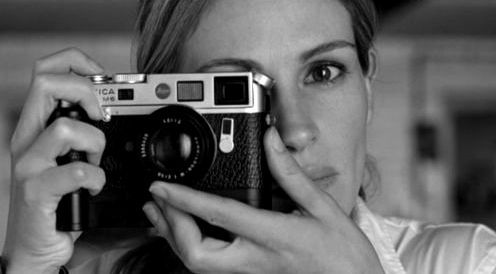
Thorstein Veblen (1857-1929) was a famous Norwegian-American economist and critic of capitalism. In his best-known book, The Theory of the Leisure Class, Veblen coined the concepts of conspicuous consumption and conspicuous leisure. He argued that wasting money on pointless possessions was hard-wired into us as a species. According to Veblen, high cost is the major factor in what we consider desirable and beautiful and those purposely engaged in wasting money on such high cost items are ultimately sending signals about their desirability by signaling they have the excess means to live wastefully. It is not, and never has been, about reasonable calculation and cost/benefit analysis.
************

Suppose, says Veblen, two similar cameras, one “handmade” by a German brand known for its luxury items, the other mass produced to exacting specs from high-grade materials by a highly regarded Japanese maker. As visual objects, its merely a matter of aesthetic preference – some like one, some like the other. Objective analysis (e.g. sensor ratings, pixel peeping etc) proves that they work identically and produce identical results. Yet people will pay $7999 for the handmade camera, while paying $2400 for the mass-produced one. And interestingly enough, with time general opinion will morph into the conclusion that the expensive camera, the handmade German one, actually produces better results (see “the Leica Glow”), small but important things incapable of complete articulation but there none the less.
Now, suppose we examine the “handmade” camera and find that its signs of being handmade are somewhat of a stretch, only the last few screws of the top-plate being applied by hand; and we also learn that it’s not manufactured in Germany but through a third party camera maker in Japan. None of this was divulged to the buyer given the top-plate was actually screwed onto the camera at Wetzlar before it was put into the box. Immediately, according to Veblen, this camera’s value should decline in level, much closer now to that of the second camera even while the photos it produces – the raison d’etre of the camera – remain the exact same.
Per Veblen, this is because our sense of quality “is in great measure a gratification of our sense of costliness” i.e. hand-made in Germany by luxury goods purveyor equals costliness equals desirability; then, via sleight of hand, ‘better’ invariably becomes substituted for desirability.
*************
Veblen’s ideas have profound aesthetic implications. His insights have been explained away by many contemporary commentators as being about capitalism and the distortions it imposes on our tastes and aesthetic values. Dennis Dutton, in his fascinating book The Art Instinct, argues that these commentators are wrong. Dutton, citing Darwin’s work on ‘sexual selection’ (a corollary of “Natural Selection”) claims that the equation of costliness=better is hardwired into us as a species, arising as it does from the intrinsic connection we make with wealth and social status and better evolutionary fitness. Extrapolate such inherent biases to inanimate objects and you get the phenomenon of luxury goods. In other words, humans who engage in conspicuous waste – Porches, $10,000 Gucci handbags, Lenny Kravitz Leicas – are sending out signals about their inherent evolutionary fitness, i.e. “Look at me! Why mate with the loser with the Nikon D90 and when can have me, the Guy with the uber-expensive Leica with Noctilux!”
This is why hucksters like [von] Overgaard invariably marry their false claims of competence with ostentatious shows of wealth. This is why he hangs out with pseudo-designer meatballs who claim to make bespoke do-dads for the beautiful people. This explains the pathetic claims to royalty and the marriage to a woman who calls herself a Princess. This explains the supposed travel to exotic places accompanied by his designer leather bags. These are all not-so-subtle dog-whistles used to subconsciously subvert your critical faculties and to support his otherwise specious claims to being an important, high-status person to whom one should listen. Engage in this thought experiment: what if [von] Overgaard used a Nikon , claimed extensive knowledge about Nikons, but drove a Volvo and dressed like a solidly middle class Dane? No claims to royalty, no marriage to a Princess, no supposed elbow-rubbing with the rich and quasi-famous. Just a guy who loves Nikons and knows all about them and wants to impart his knowledge to you, Joe Nikon, to “help you achieve your photographic vision.” Would that work?

